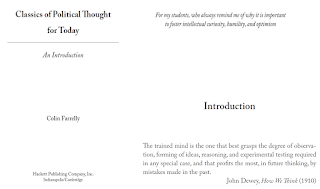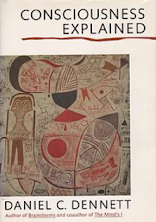Russell's Marriage and Morals (Reading group, meeting #1 notes)
This spring/summer I am running a reading group on Russell's Marriage and Morals. Below are my notes/questions for the group's first meeting in April.
Russell reading group notes for meeting #1 (chapters 1-6)
Background note: Russell was married 4 times
in his long life. From age 22 till his death at age 97, there
was never a year he was not married to a woman.
His marriages were always within a year of a divorce. Perhaps the idea of being single for a few
years was unpalatable to him, or perhaps that could not rival the joys of
romantic companionship? Marriage #1 lasted 27 years, #2 lasted 14
years , #3 16 years years, and his final marriage lasted till his death (18
years later). If you are curious about Russell’s love life you can read this.
Below is a brief summary, with questions we can focus on
to get the discussion going:
Chapter 1:
Why a Sexual Ethics is Necessary
Russell gets straight to the answer of this chapter by asserting that there is “no country in the world where sexual ethics and sex institutions have been determined by rational considerations" (exception might be Soviet Russia) p. 5). The issue of which sexual morality would be best for the general happiness and wellbeing is complex, he contends, but certainly tradition and superstition are not the best guides.
Furthermore, Russell believes that the answer to this question must be context specific, and so will vary depending the circumstances of the society in question. And there are 3 layers to the sexual morality of a community—that covered by the law; that the object of public opinion; and the domain where the individual has discretion to decide.
Question for discussion: what ideals, norms and expectations about romantic and sexual relations were you raised with? What were the common attitudes about sex? (e.g. wait till marriage?, something done primarily for offspring, love, out of service, etc.?). Was there pressure to marry and have children? What was the advice and expectations you received about picking a suitable mate? How many children were you expected to have? And what were the societal attitudes around things like divorce, parenting, etc.? Was your family patriarchal? Do you think things have changed within families since your childhood?
Meta-question to ponder: Do you think tradition has served as a useful guide to the sexual morals of your community? Why/why not?
Chapter 2: Where Fatherhood is Unknown
Given the title of this section I did some research to find out the estimates of “cockoldry” – sexual behavior in which a pair-bonded female mates with a male other than her partner. Maternity is always 100% certain, but before paternity testing there was never certainty about paternity. Credible historical estimates put the rate of cockoldry in Western societies at about 1%.
Chapter 3:
The Domain of the Father
Russell claims that a father’s feelings towards his
offspring are driven by a love of power and a desire to survive death-- that his children are a continuation of his
life.
He argues that jealousy is driven by the fear of the
falsification of descent.
Russell contends that marriage customs have been a blend
of 3 factors—instinct, economics and religion.
Questions:
What are your thoughts on jealousy and
celibacy/excess of sexual indulgence? What do you think about the pro and
anti-sexual elements of religion? The notion
that sex is only for creating offspring is quite foreign to us now that birth
control exists. Russell asks: “what lead
the church to condemn all fornication? And
was this condemnation valid? Are there other valid grounds for such condemnation”?
Meta-question to ponder: is there a viable account of “sexual virtue”, and if so, what is it?
Chapter VI:
Romantic Love
Two quotes I noted:
p. 66 “The essential of romantic love is that it regards the beloved object as very difficult to possess and as very precious. It makes, therefore, great efforts of many kinds to win the love of the beloved object, by poetry, by song, by feats of arms, or by whatever other method may be thought most pleasing to the lady.” Thoughts on this? Russell emphasizes how important it is that a woman be hard to get. Is this a sign of those times? Or perhaps an insight into Russell’s own attachment style/ideal of love?
p. 76 “In romantic love the beloved object is not seen accurately, but through a glamorous mist; undoubtedly it is possible for a certain type of woman to remain wrapped in this mist even after marriage provided she has a husband of a certain type, but this can only be achieved if she avoids all real intimacy with her husband and preserves a sphinx-like secrecy as to her inmost thoughts and feelings, as well as a certain degree of bodily privacy”.
Questions: what your
thoughts on romantic love? Is it a
healthy / feasible ideal in the contemporary context? What are the pros and cons of being “a
romantic”?







